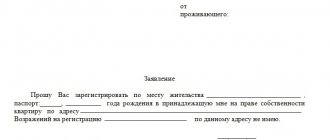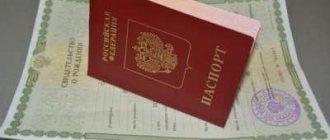In order to remain a monopolist in the production sector or in the market for services provided for a long time without losing the company’s income, you need to know about the registration of intellectual property. Why is this done, who provides such services and how much does it cost.
The main source of income for many countries is the development of new technologies, which, in turn, are the driving force behind the development of the international innovation market. To avoid a reduction in income, it is necessary to register exclusive rights or objects of intellectual activity.
Intellectual property (IP) is the results of mental or creative activity, the latest technical developments, the development of the style of a company or website, written articles or paintings, expressed in intangible form. Registration of intellectual property is optional. Registered rights can be transferred for further use:
- having drawn up a license agreement - the transfer of rights by the licensor to use the results of its activities to another party;
- by signing an agreement on the alienation of exclusive rights (transfer of all your rights in full);
- registration of an author's order (creation of an IP for another person to order).
Legal relations in the field of intellectual property are regulated by Part 4 of the Civil Code of the Russian Federation and the legislative act “On Copyright”.
Registration of an intellectual property object represents protection against third-party use of the results of intellectual activity.
IP rights can be registered if it belongs to one of the following types:
- product of industrial property (invention, trademark, product brand);
- object of copyright (software development, literary creation, work of art).
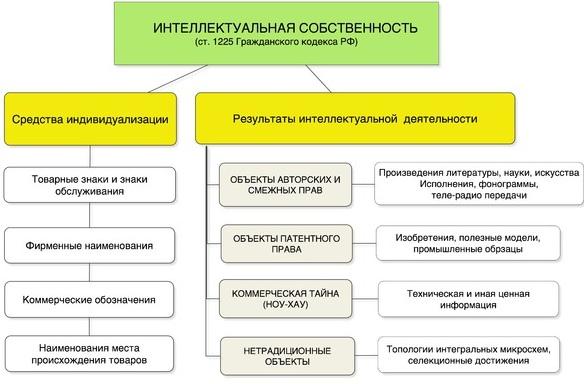
No fewer dishonest people encroach on the results of mental activity than on objects of other types of property. In this case, only the author or creator of the product bears the losses. To avoid possible problems, it is necessary to officially register your developments, works and creations.
General provisions
State registration always presupposes the activities of some competent government agency. In our case, the registering authority is the Federal Service for Intellectual Property (Rospatent), but issues related to selection achievements are in charge of the Ministry of Agriculture of the Russian Federation.
The essence of such activity is that a number of circumstances are checked, in particular: whether the given object can be registered by law, whether the application and documents comply with the requirements of the law, as well as other points.
As a result of registration, the object becomes protected by law. The person indicated in the application as the applicant becomes the copyright holder (i.e., he acquires the exclusive right to such an object of intellectual property). This is the meaning of the whole procedure.
Information about all registered objects is publicly available. On the website of the Federal Institute of Industrial Property (FIPS), which is a division of Rospatent, you can view the relevant registers. Website address: https://www1.fips.ru/wps/portal/Registers/.
Register of selection achievements: https://reestr.gossort.com/.
How to register copyright: detailed instructions

Today, everything is stolen, from small photographs, logos to large literary works. Regardless of volume and cost, all this is intellectual property. Such actions are prosecuted and penalties are provided for this. But this is only possible if copyright registration has been carried out in a timely manner. The lack of the necessary legal knowledge base among modern people is not surprising. After all, during the Soviet era, few people registered their creative works. And there is a lot of evidence of this.
The only and unique case occurred during the Soviet Union. Then the government believed that there was no such thing as copyright in the country, and no one needed to register anything. Everything that is created is only the property of the country. Fyodor Chaliapin managed to resist this after emigrating to France. Only in this country did he find the support of justice, thanks to which he sued the Union for 10 thousand francs for copyright infringement.
Times have changed and today everyone has the opportunity to register copyright, but you need to know how to do this. And I decided to fill the gap in the knowledge of modern people through useful advice based on the example of my own professional experience.
The first thing I advise all my clients is to send a registered letter or valuable parcel to themselves before formalizing the copyright. With just a few steps, you can ensure your intellectual property is protected from the start.
- After an article, novel, screenplay or any other type of product is completed, it is transferred to any type of media. Can be transferred to A-4 paper, flash drive or other removable media.
- At the nearest post office, issue a registered letter, a valuable parcel post.
- Enter your sender and recipient addresses.
- Delivery with notification.
- After receipt, do not open and ensure reliable storage.
- The post office stamp with the date of mailing is considered the date of creation of the intellectual property.
- The envelope is opened only in the courtroom, if such a need arises.
This practice is used in all civilized countries and the evidence is considered indisputable, although it seems a little strange to our compatriots. After sending by mail, you can begin the official part, and I’ll tell you how to register copyright.
Options for registering copyright for intellectual property
For official registration, you can choose one or all of the proposed methods.
- Register with the patent office. You will need to collect the necessary documents and submit a registration package after writing the application. It is important that at this point a non-disclosure agreement is concluded between the owner and the patent office.
- Depositing is registration in one of the companies that are considered collective management communities. For example, these could be UPRAVIS, RAO, RSP, VOIS. A copy of the intellectual property remains in the archive, and the owner is issued a document confirming the right and the date of registration. The data is entered into the copyright register, which can be accessed from anywhere.
- Notarized confirmation. This is carried out after you have a license for authorship. A copy of this document is certified by a notary.
- Registration of rights on the Internet. There are two options - without signature confirmation and with EDS confirmation (electronic digital signature). All registration data is entered into an electronic register.
For a better understanding, it is worth studying the types of intellectual property presented in the table. They all have an author, so they should have copyright protection.
| Type of intellectual property | ||
| Industrial | Unconventional | Author's |
| Inventions | New plant species | Literary works |
| Utility models | Breeds of birds, animals | Works of art |
| Industrial designs | microcircuits | Software |
| Trade marks | Commercial and industrial secrets | Compilation (revision, presentation of other people's results) |
| Geographic maps, data | Scientific discoveries | Musical works |
| Brand names | Rationalization proposals | Videos of work, soundtracks |
This is only part of the data, but it gives you an idea of what the intellectual property is.
Objects that do not require registration
Traditionally, registration is not required for objects of copyright and related rights, since they are protected from the moment of creation. This means that today in Russia there are no, for example, registers of works of science, literature or art, since the legislator sees that this is not necessary. This approach is determined by the norms of international law, for example, the Berne Convention states that no formalities are needed to create copyright.
Why is this done? Experts in the field of intellectual law (in particular, V.A. Dozortsev) attribute this, firstly, to the fact that works are always unique a priori; a complete coincidence of two works is almost impossible. But the coincidence of two inventions is not only a possible situation, but also quite probable. Thus, Alexander Popov presented his version of radio to the public in 1895, but did not file patent rights for it. In 1896, another scientist, Marconi, received a patent for radio, and it is he who is often called in Europe and the USA the true inventor of radio.
Another point worth paying attention to is the following: the form is protected in works and performances, and the content is protected in objects of industrial property. Thus, the form of two inventions may be different (for example, in a radio it is a different width of the device structure itself, different parts), but if the functional designation is the same, then these inventions are recognized as identical, and priority, as we indicated above, will go to the inventor which he patented earlier. In works and performances, content does not play any role, and therefore it is quite logical that there is no urgent need for registration.
A production secret (know-how) also does not require registration.
In addition, among the means of individualization, a commercial designation is not registered - a relatively new object of intellectual rights for the Russian Federation (see the article about means of individualization). Protection requires familiarity within a certain territory, as well as distinctive features (i.e., complete or significant similarity with other means of individualization is not allowed).
We would like to draw the attention of readers to the fact that, although registration is not provided for by law, copyright holders find alternatives to it for reliability. Thus, there are Internet resources (in particular, https://www.copytrust.ru/) where you can actually register your work. The same services exist in the Russian Authors' Society (RAS). Commercial designations can be registered in the Chambers of Commerce and Industry of the constituent entities of the Russian Federation (see, for example, https://nnov.tpprf.ru/ru/services/32014/). Thus, we can say that accounting for intellectual rights can exist regardless of official registration.
Registration deadlines and costs
The cost of registration depends on the organization the author applies to. If we are talking about RAO, then you will have to pay from 500 to 3 thousand rubles . After completing all procedures, the applicant receives a registration copyright certificate, and his work is assigned an international registration number. All this can take from several weeks to several months . It all depends on the authenticity of the documents presented.
11 thousand rubles for registration with a notary . But such registration is almost instantaneous. If you have all the documents, you can register on the day you contact the notary.
Objects subject to registration
Let us briefly consider the status of computer programs. For them, as an exception, registration is provided, but it is optional and does not affect the emergence of an exclusive right. Most likely, this was done because computer programs have some similarities with objects of industrial property rights (in particular, they may have an innovative level, industrial significance, etc.), but at the same time these properties are not enough for their content to be protected, and not a form. Therefore, such a compromise was found.
The remaining objects of industrial property rights (with the exception of commercial designation and know-how) require registration, and we have already examined the reasons for this approach.
Functions of Rospatent after registration
The actions of this structure are not limited to registration and issuance of licenses. After the procedure, the intellectual property is under the protection of the company and, which guarantees:
- legal protection;
- legal support;
- supervision during expert assessments;
- registration in other legal structures;
- control at the time of publication of information about property.
All methods of protecting intellectual property are recorded in the Civil Code and the Criminal Code, and safety is guaranteed by the Constitution. All identified violations carry serious penalties in the form of imprisonment and serious fines.
I would like to give a few examples from personal practice. One of my clients works as a designer. He developed a unique design project, which was in the registration stage. But at my insistence, he sent a copy of the project to his post office and until the patent was received, he kept it in an envelope at home. After he discovered a copy of his project on one of the sites, we filed a lawsuit against this organization. During the proceedings, it was confirmed that the author was my client. The project was removed from the site, and the man received a substantial amount of compensation.
Procedure
Now let’s answer the question: how to register intellectual property. The procedure itself is regulated by by-laws, which can be viewed here: https://www.rupto.ru/docs/regulations.
The first action will be payment of the patent fee (specific amounts are here: https://www.rupto.ru/activities/dues/patduty/tabl_razm_poshlin).
After this, you need to submit an application, which must be properly completed. The necessary documents are attached to it. In general, it is worth noting that you can resort to the help of patent attorneys (see the article about them) - individuals who specialize in these issues. They can draw up all documents on their own behalf without a power of attorney and send an application to Rospatent, and in this case the inventor will not have to focus his attention on these formalities.
Once the application is submitted, the review stage begins. This stage lasts a very long time: sometimes even more than a year. Rospatent specialists examine the object submitted for registration, carry out its examination, and request the necessary documents. It is very important to respond correctly and timely to requests from Rospatent, to provide the required materials on time, otherwise the registration may be interrupted.
The end of the procedure will be the state registration of the object and with it the exclusive right to it in the appropriate register.
The copyright holder receives the appropriate document: a patent (for example, for an invention, utility model, industrial design) or a registration certificate (for a trademark, for an appellation of origin of goods). Your object will also be assigned an individual number by which the object can be viewed at FIPS. Facebook
Intellectual property of Russia
The state provides assistance in maintaining and developing new developments:
- tax support measures are being taken to stimulate the growth of IP objects;
- government organizations registering objects of intellectual activity with WIPO can receive compensation for the costs incurred for the development and registration of the object; to receive a subsidy, you must contact the Russian Expert Center;
- a development plan for small innovative enterprises is being developed;
- Rospatent has reduced the time frame for reviewing applications for registration of a product of mental activity;
- leading scientific institutes are being united to develop and test new technologies;
- Research centers are being created at institutes.
The Russian Federation is among the top ten countries in terms of the number of applications submitted to WIPO in the field of development of new industrial designs, creation of new utility models and trademarks. The bulk of developments are recorded in the development of computer technologies and electrical equipment. In industry, the leading position is occupied by the development of modeling products and textile samples.

For Russia, 2017 marked the beginning of the development of blockchain technologies, that is, a new type of information transfer. Initially, the development was focused on digital currency, but other options for using this technology are currently being developed.
Services for you
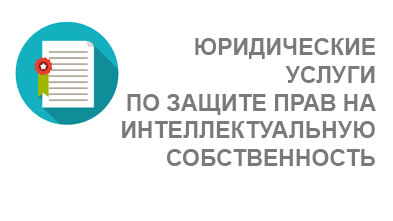
Intellectual Property Lawyer
— Protection of IP rights — General concepts — Liability for IP violation — IP protection in Russia — Why RTM Group — Consultation with an IP lawyer
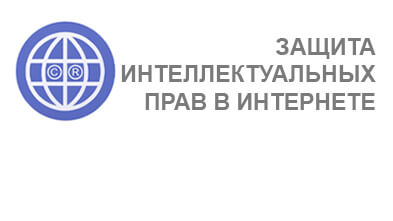
Protection of intellectual rights on the Internet
— How to protect the rights to an Internet resource? — How to protect rights to a trademark (brand) — What to do in case of recorded violations? — Order protection of IP rights on the Internet — Why RTM Group — Order a service for the protection of intellectual rights on the Internet — Cost of services for the protection of intellectual rights on the Internet
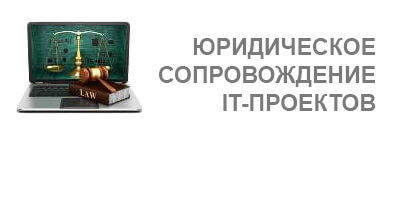
Legal support of IT projects
— Who do IT lawyers work with? — Tasks of a lawyer — Legal support: how does a lawyer work with IT companies? — Who needs legal support? — Why RTM Group? — Price of services for legal support of IT projects — Order work for legal support of an IT project
Is it possible to protect your authorship without official registration?
There are other methods we recommend authors keep in mind if they want to effectively protect their intellectual property.
- First, be sure to keep drafts and preparatory materials that will help establish your authorship priority.
- Secondly, a notary can help with registration of copyright for intellectual property. This is not the cheapest or fastest procedure, but it is also an effective way to record the date on which the work already belonged to you.
- Thirdly, you can use Russian Post and send yourself an envelope with the result of your creativity. Not always convenient, but an option.
Finally, keep in mind that in legal disputes, Russian courts will consider any evidence that can confirm that you are the author of the work, including witness testimony.


